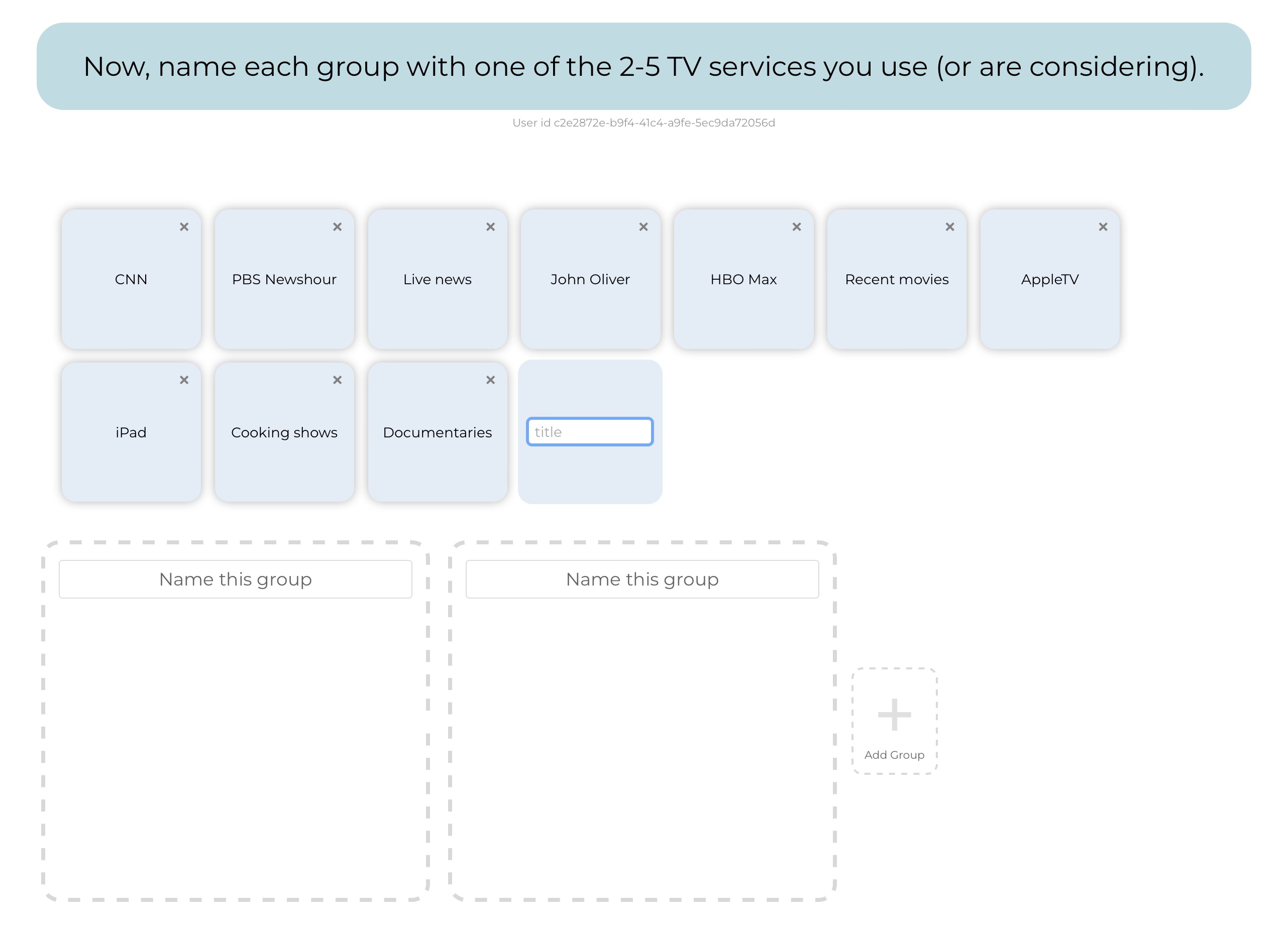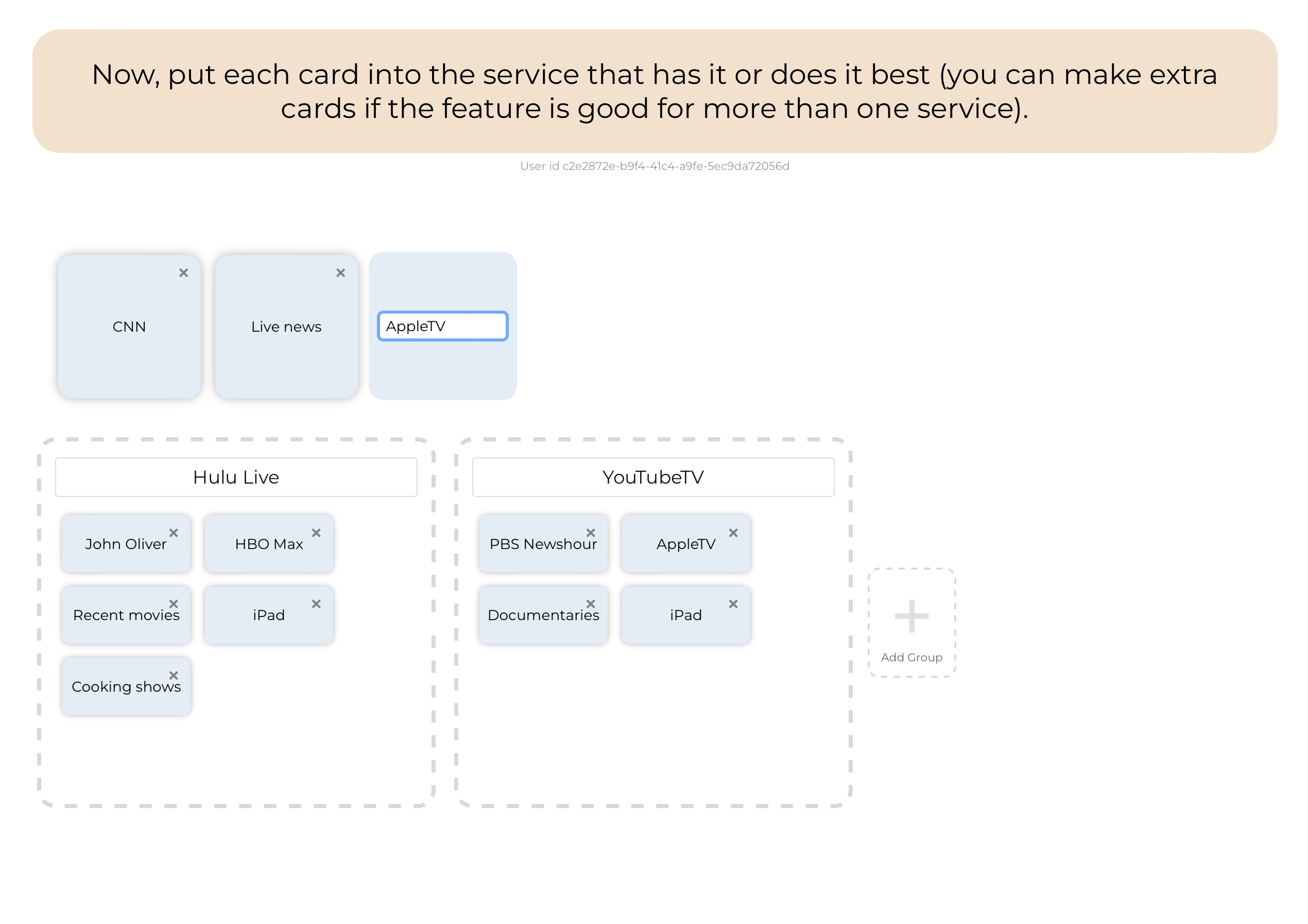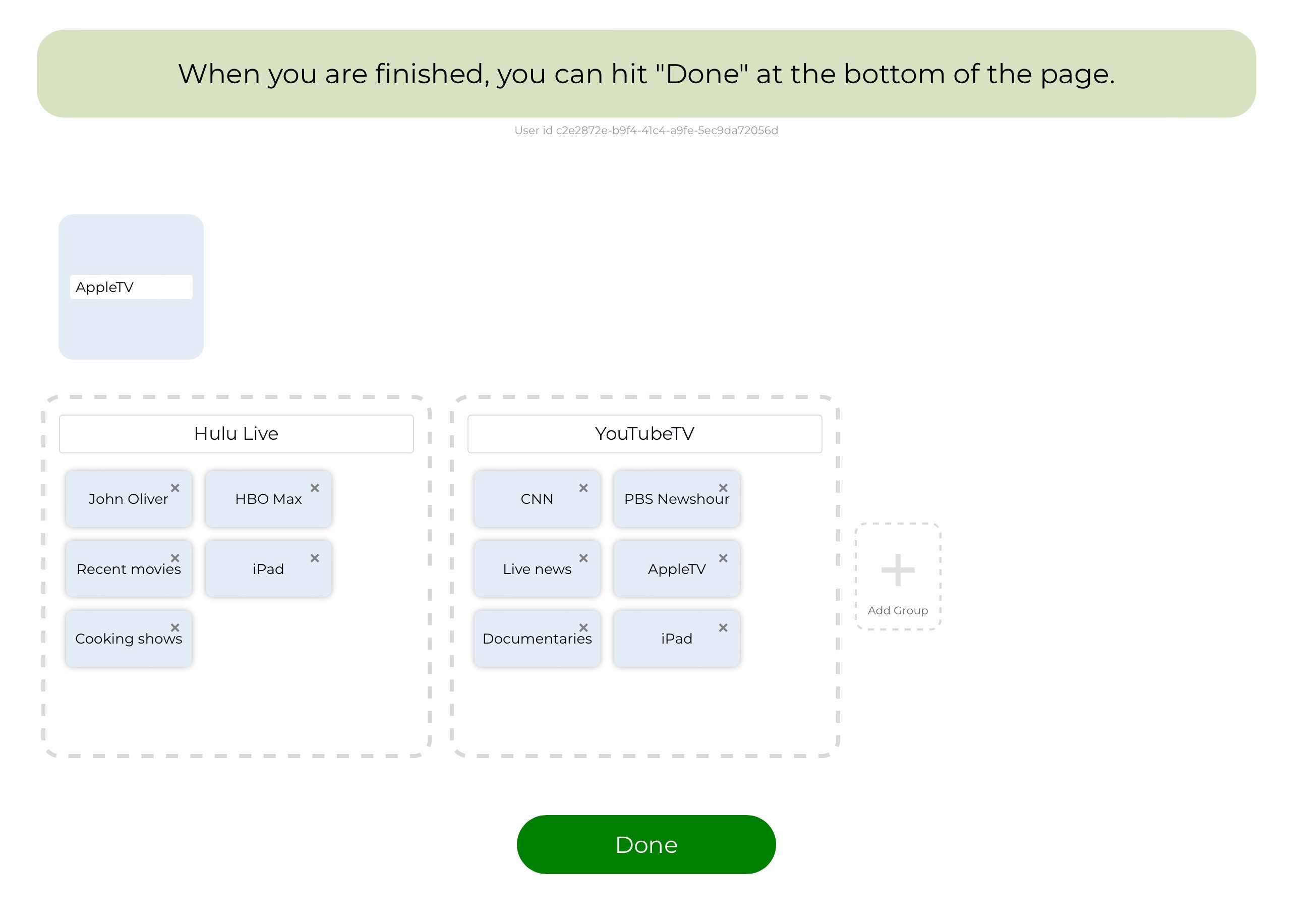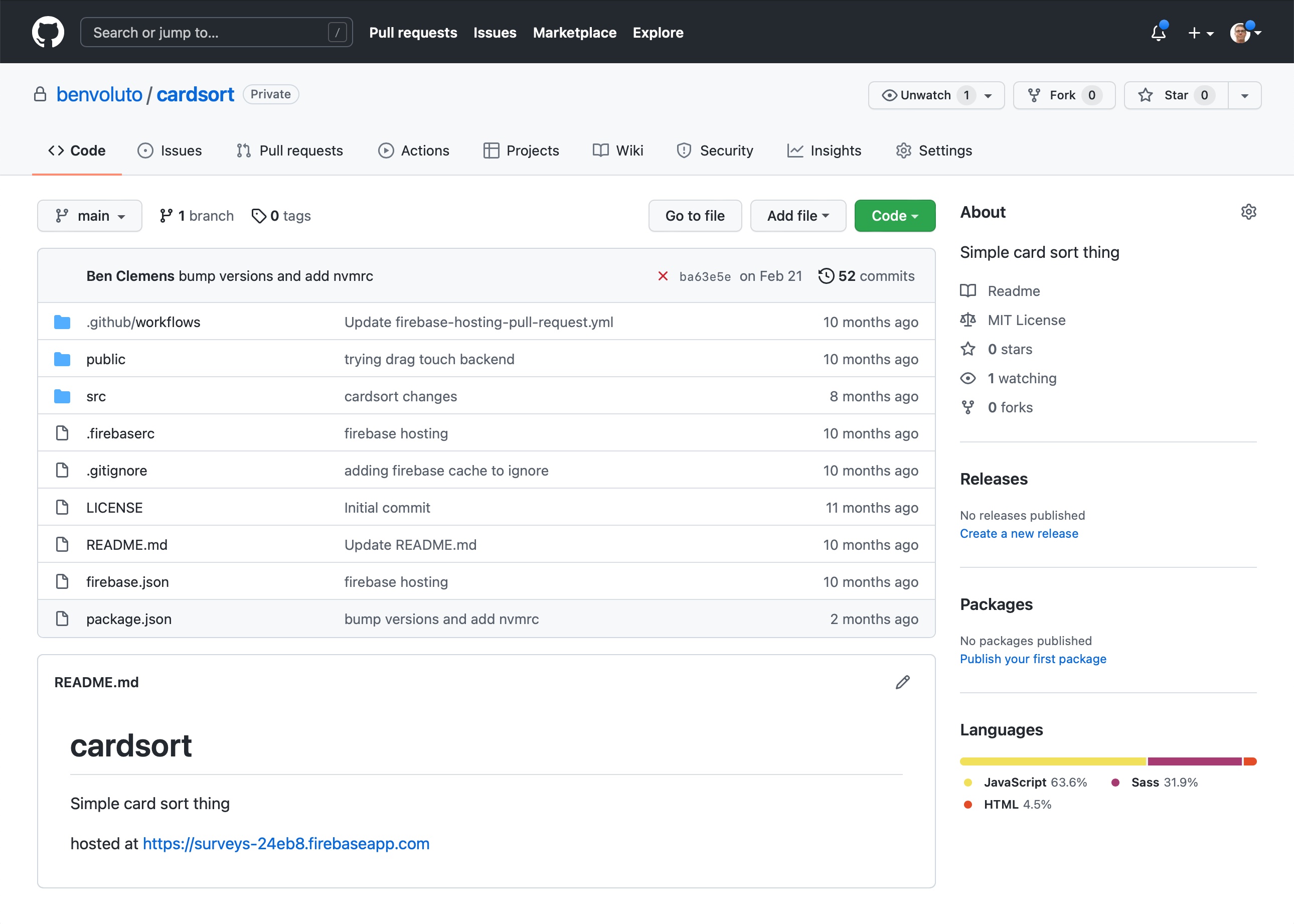Card Sort Tool
A common user-research technique is the card sort. A researcher asks users to group or prioritize some set of ideas or factors by having them on cards, either with the cards created in advance (closed) or by the user (open). 
 Photo by nedrichards on Flickr
Photo by nedrichards on Flickr
Normally, this activity requires researchers and users to be in the same location, with the researcher supervising the study. I had always seen a lot of bias in this research technique, since the researcher has to prompt participants for ideas and ask them how they want to group the cards. This can cause participants to immediately react with choices that may not be most authentic to them (or they may want to appear decisive and quick to complete the task).
So when we had need of a card sort for a study, I and the other product designers at Philo (Rachelle Miller and Jane Slaughter) created an online cardsort tool. We used it to gather factors contributing to the purchase decision for a TV streaming service.




We did the study twice: once with a survey first to ask about user attitudes and impressions of different brands, and once with just the card-sort activity. The second version took steps to make sure users were not spamming the study and were qualified.
The results were very useful, combining the qualitative information from a supervised study with the scale of a survey. We gathered hundreds of responses instead of the usual handful that are possible in-person.
You can see it here: Cardstudy.net, and try it for yourself.

Note! There are services that researchers can pay for to achieve similar results if you prefer something more complete and polished, like UXTweak or OptimalWorkshop.